 While you’re here, be sure to sign up for my SAT email list to download the Urgent Report on Critical Reading and get other SAT-related bonuses just for subscribers!
While you’re here, be sure to sign up for my SAT email list to download the Urgent Report on Critical Reading and get other SAT-related bonuses just for subscribers!
Alright, let’s investigate misplaced modifiers on the SAT a little further. This is a continuation of SAT Grammar: Misplaced Modifiers, Part 1.
Remember that misplaced modifiers are not only my second-favorite grammar error on the SAT Writing section, they also make up a respectable number of the grammar multiple-choice questions, so mastering this topic will definitely improve your writing score on the SAT.
We want to get to the point where these errors just jump off the page because they’re so obvious to you. You’ll get there! Every student can completely master this grammar topic on the SAT.
I want to use this post to break down the term “Misplaced Modifier” first. Then we’ll move onto more practice.
What is a “modifier?”
It’s word or phrase that describes or “modifies” a bland old noun like “table.” So, if we said “the red table” instead of just “table,” then “red” is the modifier.
On the SAT, the sort of modifiers we are interested will usually be longer, and set off by commas: “With a sweet-smelling candle left burning on it, the table made a fine centerpiece.”
Now, the modifier is “with a sweet-smelling candle left burning on it.” This phrase modifies, clarifies, and further describes the table.
There are two main places that we’ll find a misplaced modifier on the writing section of the SAT:
1) A modifier may start the sentence off (occasionally the modifier will end the sentence) and be separated from the main part by a comma (check the table example above)
Get Exclusive SAT Prep Tips!
I want to send you more tips to help your SAT score, but I need your email address to stay in touch. Enter your email below so I can send you my reports on the SAT and other subscriber-only bonuses.
2) The modifier may appear in the middle of the sentence and be set off by commas on both sides (the turtle example below).
These are the two most common places to find a modifier in a sentence on the SAT.
So, what’s the modifier in this next sentence?
“The turtle, wandering through the forest, came across a dancing caterpillar.”
The modifier would be “wandering through the forest,” the phrase that gives us extra detail about the turtle. It “modifies” what we know about the turtle by providing more details about him.
Notice that the modifying phrase is set off by commas on both sides. Because modifying phrases provide a bunch of extra detail, they are not essential to the meaning of the sentence and don’t contain the main subject or verb.
Ok, I think you’ve got it. Modifiers can be more subtle, but just look for non-essential descriptive information that’s separated by commas.
We’ll practice spotting modifiers more as we continue.
Now, what are “misplaced” modifiers?
Simply put, they are modifying phrases that have wandered far, far away from the nouns they are modifying. Misplaced modifiers are like little lost descriptive sheep that have wandered from their rightful meadow and are now just bleating and describing random nouns willy-nilly across the land. They are in the wrong place at the wrong time.
Here’s an example of a modifier that has been misplaced:
“Parking their RV, the campground was a great place for the family to explore.”
What’s the modifying phrase? (Hint: It’s in one of the two most common placements – the beginning of the sentence) Right, the modifier is “Parking their RV,” which gives unessential detail about what the family is doing, and is set off by a comma.
But look – this descriptive phrase is right next to “the campground,” not “the family.” Is the campground parking the RV? Definitely not, that’s ridiculous! The family is parking their vehicle at the campground, right?
In fact, it’s so ridiculous that this might not even stick out to you as being a problem. There’s really no chance of us being confused by the meaning of this sentence, because we are rational, thoughtful human beings. We understand what is meant.
However, the SAT is NOT A RATIONAL, THOUGHTFUL HUMAN BEING! The SAT is so ridiculous that it thinks our example sentence means the campground was parking the RV.
Wow, that’s pretty dumb! So if we just learn to catch this kind of misplaced modifer mistake we will make the SAT very happy and our score will shoot up.
Here’s one more example of a misplaced modifier error:
“Sprouting luscious green shoots, the rampaging child trampled all over the newly-planted lawn.” Heh-heh. Does it just jump out at you?
When it comes to misplaced modifiers on the SAT, ask yourself:
1) “Where is the modifying phrase?” 2) “What is it meant to be describing?” 3) “What is it actually describing, as written?’
Well, in our “newly-planted lawn” example:
1) The modifying phrase is “sprouting luscious green shoots.” 2) This phrase is meant to be describing the “newly-planted lawn.” 3) It is currently actually describing “the child,” because it has been misplaced next to the wrong noun.
How to fix it? There are many ways, but we could say:
“The lawn, sprouting luscious green shoots, was trampled all over by the rampaging child.”
Now the modifier is no longer misplaced – our descriptive sheep has returned to its pasture, nestling comfortably next to the noun (“lawn”) that it is actually meant to be describing.
Now it’s a pretty passive sentence – a whole new can of worms on the SAT grammar section – but at least the misplaced modifier disaster has been fixed. More on misplaced modifiers to come!
For more hardcore SAT grammar rules and practice, purchase a copy of my SAT Grammar Crammer from our online bookstore!
Further Reading:
Misplaced Modifiers, Part 1
SAT Writing Grammar Rules: Misplaced Modifiers
SAT Grammar: Misplaced Modifier Examples
Hilarious SAT Writing Errors: Dangling and Misplaced Modifiers
Subject-Verb Agreement on the SAT Writing Section
Additional Resources:
SAT Grammar Crammer: Top 12 SAT Writing Grammar Rules
Did you learn anything useful from this article? If so, be sure to join my SAT emailing list before you go today. I’ll send you exclusive subscriber-only content like the Urgent Report on Critical Reading and other SAT-related bonuses!

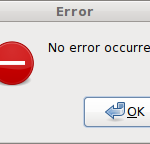

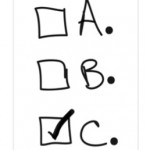


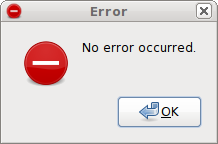

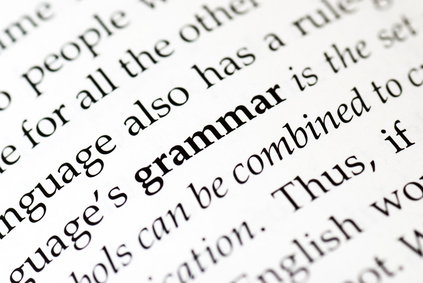

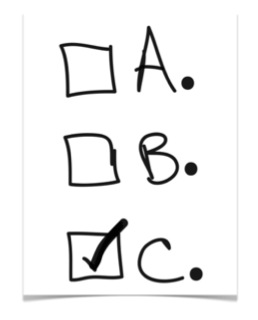







Find Me on Social Media